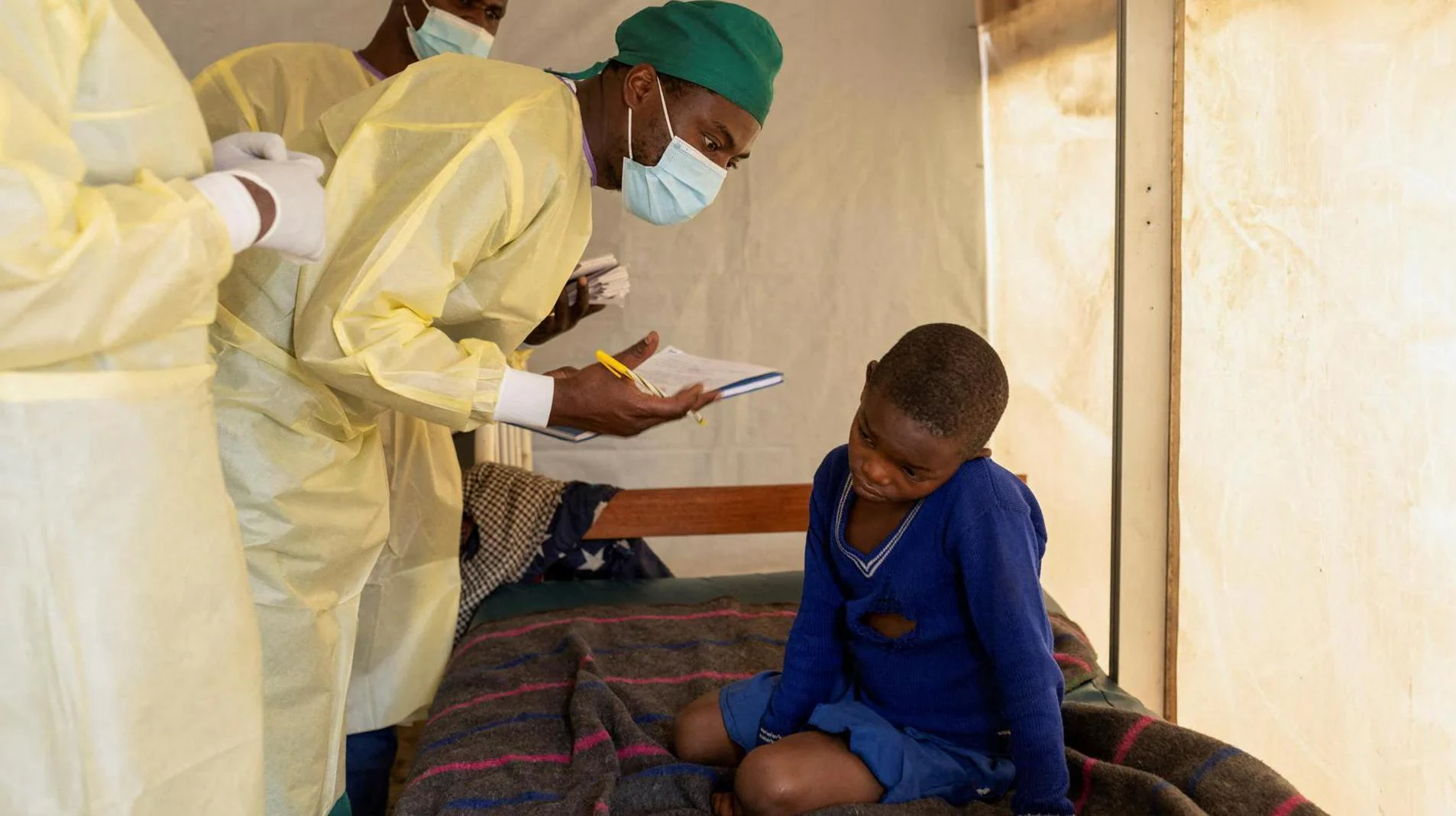Spain on alert as WHO declares international health emergency ...

Thursday, 15 August 2024, 12:50
The World Health Organization (WHO) on Wednesday declared an "international health emergency" over the explosion of monkeypox outbreaks in Africa. The international agency warns that the situation on the continent of mpox, as the disease is also called, is very worrying, with outbreaks of different variants, in different countries, with different modes of transmission and different levels of risk.
"The detection and rapid spread of a new clade (variant) of mpox in the Democratic Republic of Congo, its detection in neighbouring countries that had not previously reported the disease and the potential for wider spread in Africa and beyond is of great concern," said WHO Director-General Tedros Adhanom Ghebreyesus after a more than five-hour meeting with 16 experts of the emergency committee, the body that analyses outbreaks that can be considered a health emergency.
"Stopping these outbreaks will require a tailored (situation-specific) and comprehensive response, with communities at the centre," Ghebreyesus added. For now, the WHO has developed a regional response plan that requires an initial 15 million dollar (13.6 million euros) to support surveillance, preparedness and response activities. The new international health emergency is the eighth in WHO's history and the second for monkeypox after the monkeypox outbreak in 2022.
More vaccines
The first alarm was sounded on Tuesday by the African Centres for Disease Control and Prevention (Africa CDC), which declared monkeypox a continental health emergency. "Monkeypox has already crossed borders, affecting thousands of people on our continent, tearing families apart and causing pain and suffering in every corner of our continent," said Jean Kaseya, director general of the Africa CDC. The declaration of a health emergency "is not a mere formality, but a call to action to contain and eliminate this threat", Kaseya added.
Following these statements, the European Union announced on Wednesday the purchase and donation of more than 215,000 doses of mpox vaccine through the Health Emergency Response and Preparedness Authority (HERA). Specifically, the European Commission will purchase 175,420 doses of the vaccine and donate them to the Africa CDC, while the pharmaceutical company Bavarian Nordic, the producer of the compound, will donate another 40,000 doses to HERA.
The alert follows an "unprecedented" increase in cases in Africa due to a "more severe" strain than the previous one, which already triggered an international health alert in 2022 that lasted until May 2023. But experts now believe the new variant is more lethal than the previous one. Up to 15 countries have confirmed outbreaks, although the worst affected is the Democratic Republic of Congo, and for the first time outbreaks have been reported in Burundi, Kenya, Rwanda and Uganda.
In the first seven months of 2024, 461 deaths and 15,000 cases of monkeypox have been reported in Africa, although experts estimate that the number of reported cases are "the tip of the iceberg" because of the difficulty in tracing all infections and the lack of treatment.
Sexual relations
Monkeypox is spread primarily through very close physical contact, mainly in the context of high-risk sexual intercourse, although infection can also occur through saliva or respiratory excretions, or by contact with lesion exudate. More than 80 per cent of infections occur among men who have sex with men. The most common symptoms among patients are rash, fever, fatigue, muscle pain, vomiting, diarrhoea, chills, sore throat or headache.
According to the European Centre for Disease Control and Prevention (ECDC), the risk of monkeypox in Europe is "very low". "The ECDC is working with our partners in Africa in their efforts to contain this outbreak for the benefit of all those affected, and to prevent this new variant from spreading further and to strengthen future preparedness and response capacities," ECDC director Pamela Rendi-Wagner said in a statement on 29 July.
Spain is the European country with the highest number of mpox infections. The latest data from the national ministry of health, published on 8 August, show that since the first outbreak in April 2022, some 8,104 infections have been reported, although only 251 of them have been recorded in 2024 and all of them, so far, have been caused by the first strain of the virus.











































